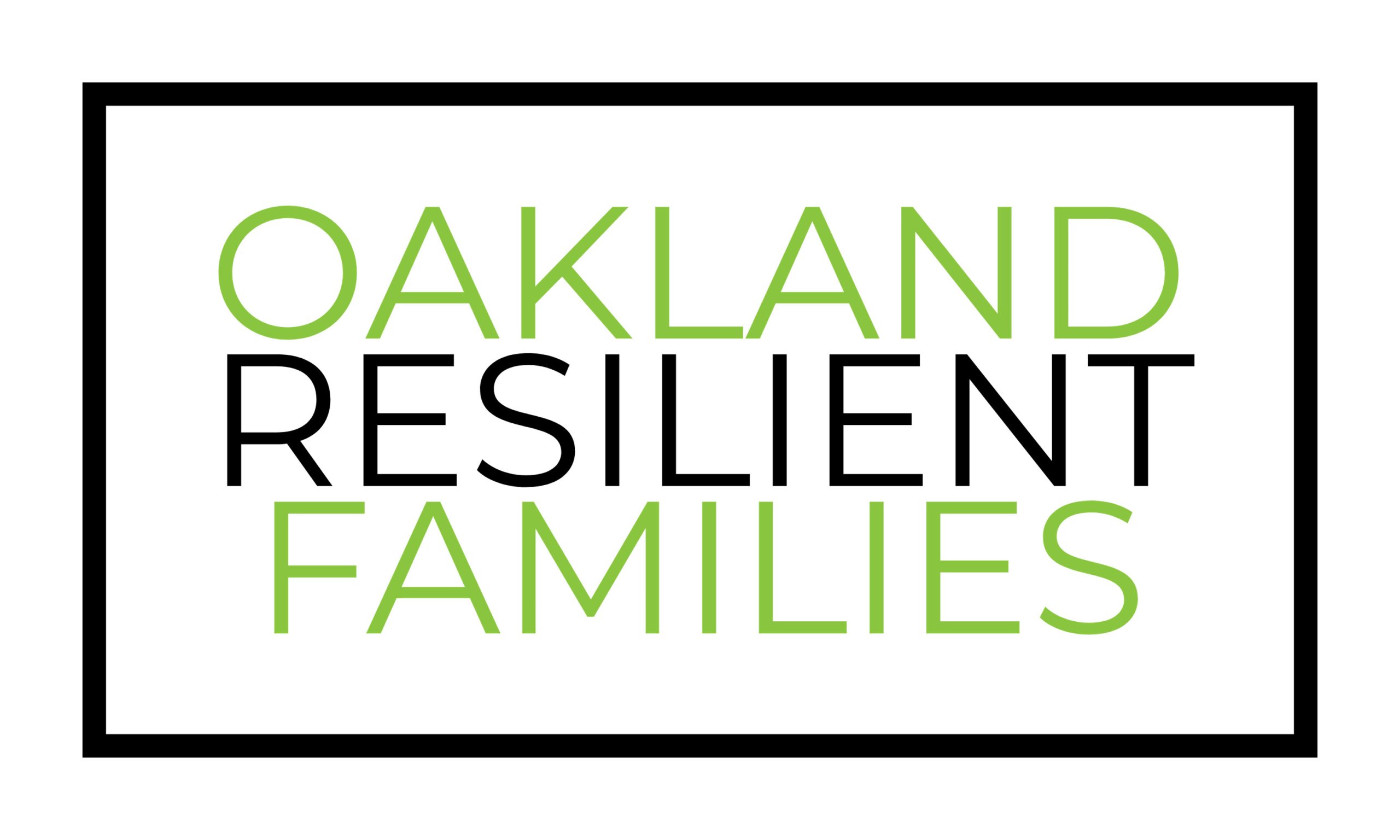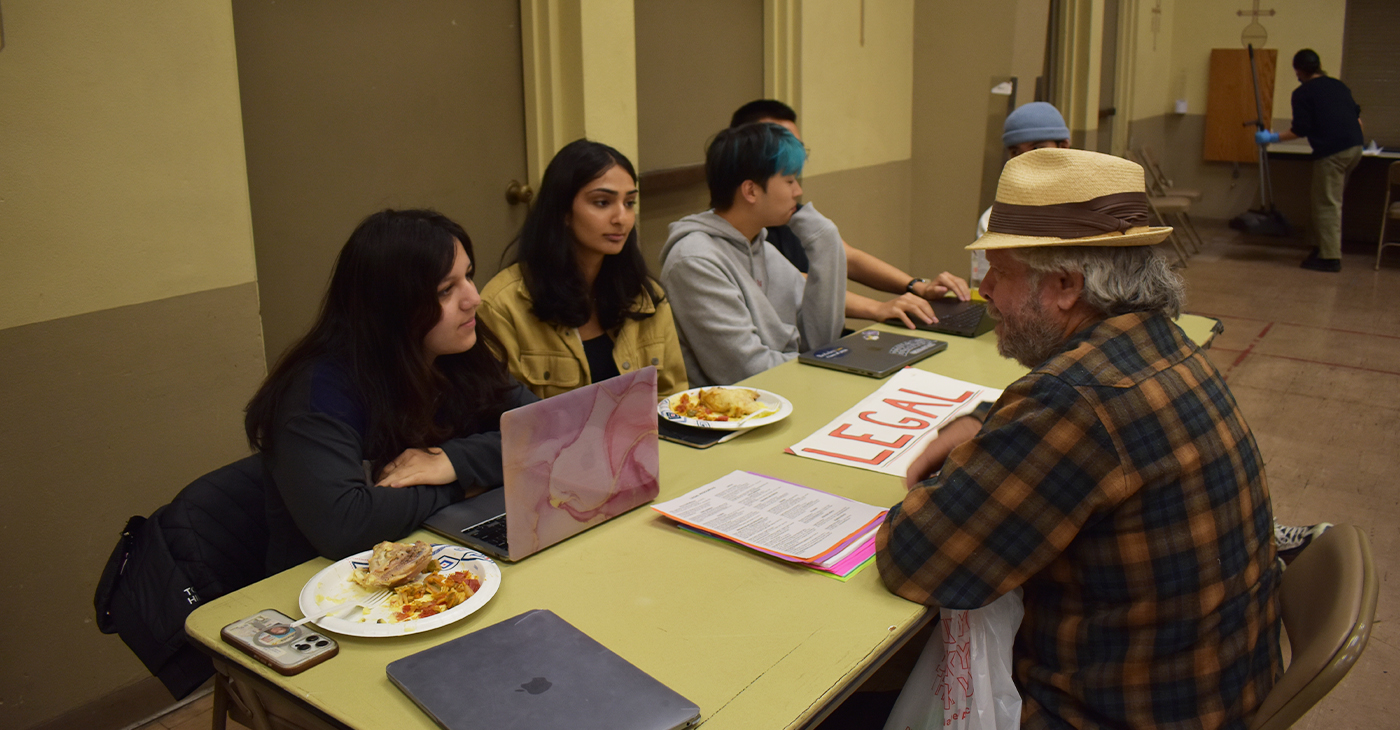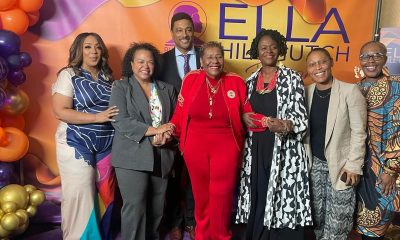Bay Area
Oakland Program Distributes $500 to Families of Color
The assistance, which targets low-income families of color in the 426,000-population city, will last 18 months. Mayor Schaaf detailed that the money comes with “no-strings attached,” and recipients can use it as they please. “We have designed this demonstration project to add to the body of evidence and to begin this relentless campaign to adopt a guaranteed income federally,” Mayor Schaaf told the local ABC News station.

In the middle of a worldwide awakening to the centuries-old racism and oppression suffered by Black people, some African Americans finally see tangible assistance – even if the help isn’t characterized as reparations.
Oakland, Calif., Mayor Libby Schaaf announced that the city would begin a guaranteed income project that would provide $500 per month to Black and Indigenous families.
The assistance, which targets low-income families of color in the 426,000-population city, will last 18 months.
Mayor Schaaf detailed that the money comes with “no-strings attached,” and recipients can use it as they please.
“We have designed this demonstration project to add to the body of evidence and to begin this relentless campaign to adopt a guaranteed income federally,” Mayor Schaaf told the local ABC News station.
The station reported that, for the project, the Oakland Resilient Families program has so far raised $6.75 million from private donors, including Blue Meridian Partners, a national philanthropy group.
The programs require residents have at least one child under 18 and income at or below 50 percent of the area median income – about $59,000 per year for a family of three.
Half the spots are reserved for people who earn below 138 percent of the federal poverty level or about $30,000 per year for a family of three, ABC reported. Participants are randomly selected from a pool of applicants who meet the eligibility requirements.
The report noted that Oakland’s project is significant because it is one of the most outstanding efforts in the U.S. so far, targeting up to 600 families. And it is the first program to limit participation strictly to Black, Indigenous, and people of color communities.
Oakland, where 24 percent of the residents are Black, is among a growing list of municipalities providing financial payments to people of color – or reparations.
Evanston, Illinois, a city where 18 percent of its more than 74,500 residents are Black, approved the Local Reparations Restorative Housing Program, which provides up to $25,000 for housing down payments or home repairs to African Americans.
The bill, authored by California Assemblywoman Shirley Weber, establishes a nine-person task force that will study the impact of the slave trade on Black people.
It does not commit to any specific payment, but the task force will make recommendations to legislators about what kind of compensation should be provided, who should receive it, and what form it would take.
“After watching [the presidential] debate, this signing can’t come too soon,” Newsom declared during a videoconference with lawmakers and other stakeholders, including the rapper Ice Cube, who championed the bill.
“As a nation, we can only truly thrive when every one of us has the opportunity to thrive. Our painful history of slavery has evolved into structural racism and bias built into and permeating throughout our democratic and economic institutions,” the governor stated.
“Hundreds of years of Black blood spilled that fills the cup we drink from today,” said Councilman Keith Young, one of two African American members of the City Council that voted 7-0 in favor of reparations.
“It is simply not enough to remove statutes. Black people in this country are dealing with systemic issues,” Young declared.
Asheville’s resolution doesn’t include monetary payments to African Americans but promises investments in areas where Black people face disparities.
Earlier this year, Congress debated H.R. 40, a bill that doesn’t place a specific monetary value on reparations but focuses on investigating and presenting the facts and truth about the unprecedented centuries of brutal enslavement of African people, racial healing, and transformation.
The commission’s mission includes identifying the role of federal and state governments in supporting the institution of slavery, forms of discrimination in public and private sectors against freed slaves and their descendants, and lingering adverse effects of slavery on living African Americans and society.
Congresswoman Jackson Lee, who sits on numerous House committees, including the Judiciary, Budget, and Homeland Security, has made the reparations legislation her top priority during the 117th Congress.
“I think if people begin to associate this legislation with what happened to the descendants of enslaved Africans as a human rights violation, the sordid past that violated the human rights of all of us who are descendants of enslaved Africans, I think that we can find common ground to pass this legislation,” Congresswoman Jackson Lee pronounced.
The project in Oakland targets groups with the city’s most significant wealth disparities.
According to CNN and per the Oakland Equality Index, the median income for White households in Oakland to be nearly three times that of Black homes.
“The poverty we all witness today is not a personal failure. It is a systems failure,” Schaaf remarked. “Guaranteed income is one of the most promising tools for systems change, racial equity, and economic mobility we’ve seen in decades.”
Two years ago, 100 residents in Stockton, California, began receiving unconditional $500 payments, CNN reported. Other initiatives in Newark, New Jersey, and Atlanta, Georgia, were launched as recently as 2020.
Former Stockton Mayor, Michael Tubbs, is the founder of Mayors for a Guaranteed Income, a network of advocating mayors founded in 2020.
Oakland Mayor Schaaf is also a founding member of the network.
“One of my hopes in testing out a guaranteed income is that other cities would follow suit, and I’m thrilled that Oakland is among the first,” Tubbs told CNN.
“By focusing on BIPOC residents, the Oakland Resilient Families program will provide critical financial support to those hardest hit by systemic inequities, including the pandemic’s disproportionate toll on communities of color.”
Activism
Oakland Post: Week of December 18 – 24, 2024
The printed Weekly Edition of the Oakland Post: Week of December 18 – 24, 2024

To enlarge your view of this issue, use the slider, magnifying glass icon or full page icon in the lower right corner of the browser window. ![]()
Activism
City of Oakland Celebrates Reopening of Main Library
“Libraries are such critical facilities for all Oaklanders, whether it’s children coming to story-time, adults reading the newspapers or borrowing the latest novels, and people engaging with a range of services and programs that the library hosts,” said Council President and District 2 Councilmember Nikki Fortunato Bas. “Such library services and programs are only possible when the facility’s electricity, heating, roof, and lighting are fixed and running efficiently. I’m proud to join this re-opening of our Main Public Library.”

The branch had been closed since May for critical infrastructure upgrades
Special to the Post
The City of Oakland leadership and community partners gathered to celebrate the reopening of the Main Library after completion of critical infrastructure upgrades to enhance the library’s facilities and provide a better experience for patrons.
Renovations include new roof installation, skylight repair, critical electrical system upgrades, new boiler control system installation, auditorium heating and cooling system installation, and improvements to lighting, flooring and ceilings throughout the building.
“This is truly something to celebrate, the reopening of our wonderful Main Library! I congratulate the staff and our partners for this important project to make the Main Library a more comfortable place for everyone for years to come, said Oakland Mayor Sheng Thao. “Thank you to Oakland voters and the California State Library for making these crucial improvements possible.”
“Libraries are such critical facilities for all Oaklanders, whether it’s children coming to story-time, adults reading the newspapers or borrowing the latest novels, and people engaging with a range of services and programs that the library hosts,” said Council President and District 2 Councilmember Nikki Fortunato Bas. “Such library services and programs are only possible when the facility’s electricity, heating, roof, and lighting are fixed and running efficiently. I’m proud to join this re-opening of our Main Public Library.”
“Public libraries are a wonderful resource for our residents, offering a safe space for learning and being,” said District 3 Councilmember Carroll Fife. “It is critical to improve and modernize our libraries so more members of our community can utilize and enjoy them. I’m excited that the necessary renovations to the Main Library have been completed successfully and thank everyone involved, particularly the City team, who helped secured the necessary grant funds for this work.”
“I am proud of the City staff and project partners who kept this important project on schedule and under budget,” said Assistant City Administrator G. Harold Duffey. “The library is an incredibly important resource for our community members, and this project is an investment into the library’s future.”
“December 2nd was a momentous occasion for Oakland Public Library as we proudly reopened the doors of the Main Library following extensive infrastructure repairs,” said Director of Library Services Jamie Turbak. “Closing the Main Library for six months was no easy decision, as it serves as the central hub for our library system and is truly the heart of Oakland. Yet, this renovation was essential, representing more than just physical upgrades—it reflects our ongoing commitment to creating a safe, welcoming space for everyone.”
The City Administrator Jestin Johnson also attended the press conference and signalled his support for the completion of the record-setting completion of the renovations. Gay Plair Cobb, a newly appointed Library Commissioner said the Library represents the soul and brains of our community.
The Oakland Public Library secured funding for these crititcal repairs through a variety of sources. The California State Library’s Building Forward Library Facilities Improvement Program awarded the Main Branch $4.2 million. To comply with the grant terms, the City of Oakland provided matching funds through Measures KK, as approved by the Oakland City Council in October 2023.
The Main Library will host an Open House to celebrate the reopening on February 22, 2025, 10 a.m. – 5:00 p.m.
About the Oakland Public Library
The Oakland Public Library is a part of the City of Oakland in California and has been in existence since 1878. Locations include 16 neighborhood branches, a Main Library, a Second Start Adult Literacy Program, the Oakland Tool Lending Library, and the African American Museum and Library at Oakland (AAMLO). The Oakland Public Library empowers all people to explore, connect, and grow. Oaklandlibrary.org
Activism
A Student-Run Group Provides Critical Support Services to Underserved Residents
Those visiting The Suitcase Clinic can get legal advice, sign up for food assistance, receive housing resources, get medical help, or enjoy a hot, fresh meal. They can also get haircuts and foot washes from the student volunteers. Nilo Golchini, executive director of the clinic, said one of the goals for most of the students working there is helping bridge the gap of trust that exists between many unhoused people and the healthcare and social welfare systems.

Part One
By Magaly Muñoz
Every Tuesday evening, the dining hall of First Presbyterian Church fills up with dozens of people eating, laughing and moving from table to table, receiving much-needed services from UC Berkeley students – just a few blocks away from the university’s campus.
Individuals seeking support services can be found in this multi-stationed room on the south end of the church talking to law students, student case managers, or receiving medical attention in a corner by healthcare professionals.
This weekly event is hosted by Cal students through a volunteer-run program called The Suitcase Clinic.
The clinic, founded in 1989, was intended to offer free resources to underserved communities in Berkeley and surrounding cities. The majority of the clinic’s clientele are unhoused or low-income people looking for extra support.
Those visiting the clinic can get legal advice, sign up for food assistance, receive housing resources, get medical help, or enjoy a hot, fresh meal. They can also get haircuts and foot washes from the student volunteers.
Nilo Golchini, executive director of the clinic, said one of the goals for most of the students working there is helping bridge the gap of trust that exists between many unhoused people and the healthcare and social welfare systems.
During their tenure in the program, many of the students say they become strong advocates for homelessness rights.

Visitors of the Suitcase Clinic can receive haircuts and foot washing by student volunteers every Tuesday evening. Photo by Magaly Muñoz.
“We’re also standing in solidarity with them. So, it’s not saying, ‘I’m going to help you, but I’m also going to stand with you,’” Golchini said.
Student volunteers get extensive training prior to working directly with clients. Those interested have to take a semester-long class to become versed in areas such as outreach, intersectionality, how to interact with unhoused people, how to sign people up for social services. and more.
Volunteers then get to pick from three different clinics: General, Women’s, or Youth and LGBTQ+.
The General Clinic is the most popular among visiting residents, while Women’s and Youth/LQBTQ+ have more specialized services for attendees.
The Women’s Clinic has many of the similar services to General, but also includes nail painting, childcare, and massages.
The Youth and LGBTQ+ Clinic offers a safe space for young people navigating living on the streets, with services that include housing referrals, wellness and recreation classes and employment resources.
Golchini explained that it’s important for them to keep these clinics separate because the different demographics experience poverty and homelessness differently than those who visit the General Clinic.

Suitcase Clinic student workers posing for a photo with a frequent clinic attendee. The Clinic is open to Berkeley unhoused and low-income residents who need medical or legal service, or a hot meal. Photo by Magaly Muñoz.
“We’re able to provide spaces where people can come in and feel safe and not feel like they’re constantly worried that something’s going to happen to them,” she said.
An outreach team also visits encampments every other Saturday in the Berkeley area to provide hygiene kits and encourage people to visit the in-person clinic, if possible.
However, Golchini said engagement has been low for some time now due to a recent decision by the U.S. Supreme Court that allows cities to ban and cite people for sleeping on the streets.
She said a lot of their clientele got displaced to other cities over time, making it difficult to stay in contact with the services the Clinic was providing for them.
But that hasn’t slowed down the students at the Clinic, if anything, it has pushed them to do more for the community they serve.
-

 Activism4 weeks ago
Activism4 weeks agoOakland Post: Week of November 20 – 26, 2024
-

 California Black Media4 weeks ago
California Black Media4 weeks agoCalifornia to Offer $43.7 Million in Federal Grants to Combat Hate Crimes
-

 Black History4 weeks ago
Black History4 weeks agoEmeline King: A Trailblazer in the Automotive Industry
-

 California Black Media4 weeks ago
California Black Media4 weeks agoCalifornia Department of Aging Offers Free Resources for Family Caregivers in November
-

 California Black Media4 weeks ago
California Black Media4 weeks agoGov. Newsom Goes to Washington to Advocate for California Priorities
-

 Activism4 weeks ago
Activism4 weeks agoOCCUR Hosts “Faith Forward” Conference in Oakland
-

 Activism3 weeks ago
Activism3 weeks agoOakland Post: Week of November 27 – December 3, 2024
-

 Activism4 weeks ago
Activism4 weeks agoRichmond Seniors Still Having a Ball After 25 Years

















































